Piano Hours - Performance Workshops
Piano Hours are informal non-public performances in a friendly atmosphere. Only pupils who participate actively are present, so there is no actual audience other than people who are all doing the same thing by playing to each other.
The structure of piano hours is always the same - pupils not only play but also discuss performances, learning to listen analytically and critically with the view of helping others. Despite this the atmosphere is friendly because pupils are not encouraged to be competitive. It is a good opportunity to find new friends with the same interests or catch up with people who are already friends. Piano hours are not concerts but opportunities to run through new repertoire, sometimes even play the same repertoire in several piano hours. Pupils are encouraged to perform new repertoire as soon as feasibly possible and then continue practising the pieces for public performances when applicable. This is a motivation which also significantly propels learning progress in a safe environment. There are no marks or prizes for piano hours as they are opportunities to practise performance rather than assessment events. We used to have tea, coffee and cake but since the events have shifted to Steinway Hall, Peregrine Pianos etc beverages are no longer part of them.
Piano hours used to be run only for adult pupils because adult learners have a lot less performance opportunities as they embark on or continue their musical journey through beginnings, grades, diplomas etc and feel more isolated in their learning than kids. But since the pandemic shut down much of what used to offered to children now piano hours are open to participants of all ages. Children play in their own slot at the beginning without a general discussion.
Piano hours have been taking place regularly since 2011. The current participation fee is £20.
Historic Piano Hour Schedule
23 June 2024
PIANO HOUR - PERFORMANCE WORKSHOP
At Peregrine Pianos, London
With performances of piano solo and duo works by William Gillock, Alexander Reinagle, Marjorie Helyer, Anton Diabelli, Hermann Berens, Muzio Clementi, Felix Mendelssohn, Ludwig van Beethoven, Franz Schubert, Antonin Dvorak, Jules Massenet, Camille Stamaty, Georg Handel, Henryk Pachulski, Serge Prokofiev, Astor Piazzolla as well as beginners' pieces from the Faber series.
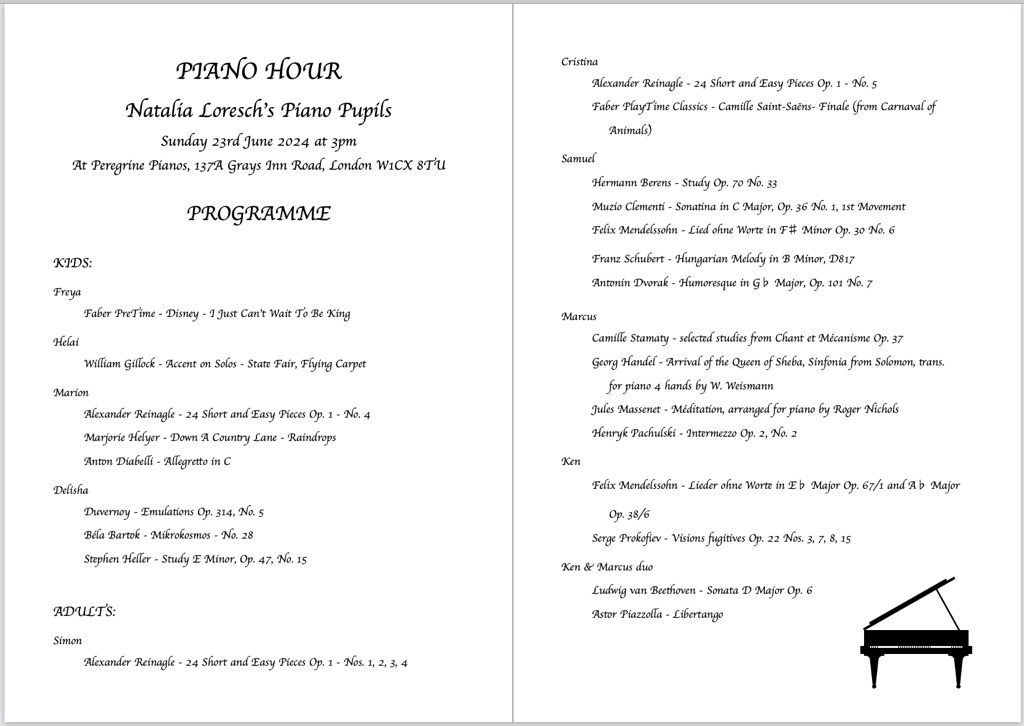
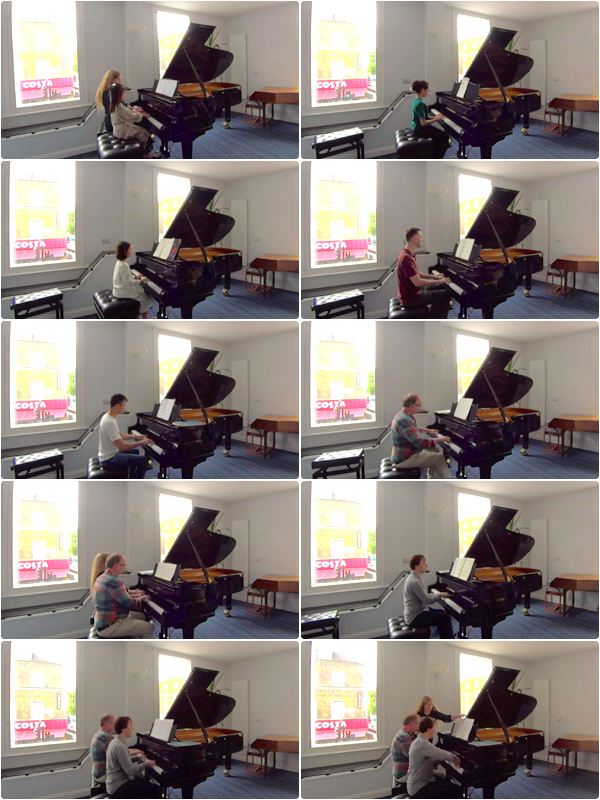
28 April 2024
PIANO HOUR - PERFORMANCE WORKSHOP
At Peregrine Pianos, London
With performances of piano solo and duo works by Alexandre Tansman, William Gillock, Ferdinand Beyer, Carl Czerny, Alexander Reinagle, A. Arensky, Henry Lemoine, Fritz Spindler, Johann Sebastian Bach, Felix Mendelssohn, Jean-Baptiste Duvernoy, Antoine Marmontel, Henri Herz, Ludwig van Beethoven, Claude Debussy, Jules Massenet, Camille Stamaty, Georg Handel, Henryk Pachulski as well as beginners' pieces from the Faber series.
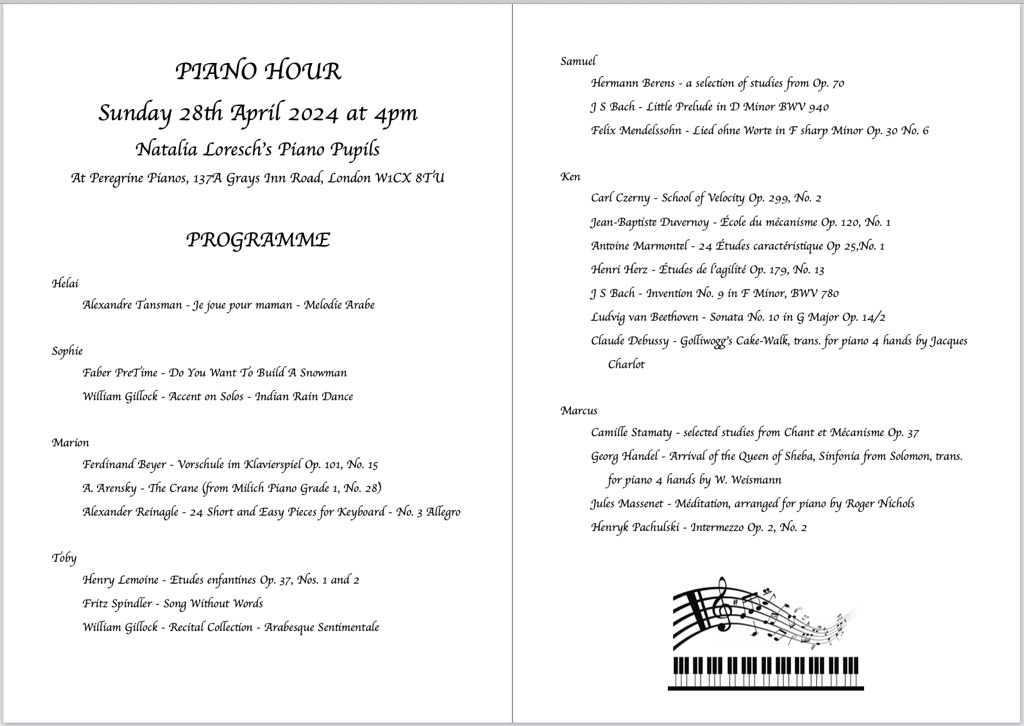
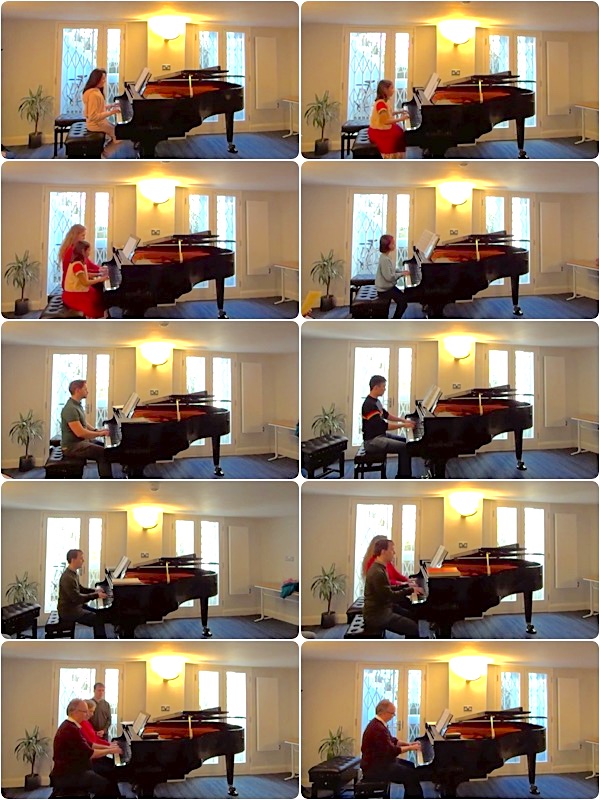
16 March 2024
PIANO HOUR - PERFORMANCE WORKSHOP
At Peregrine Pianos, London
With performances of works by William Gillock, Béla Bartok, Carl Czerny, Stephen Heller, Johann Sebastian Bach, Felix Mendelssohn, Ludwig van Beethoven, Mikhail Glinka, Dmitri Shostakovich, Sergei Prokofiev, Jules Massenet, Johannes Brahms, Camille Stamaty as well as beginners' pieces from the Faber series.
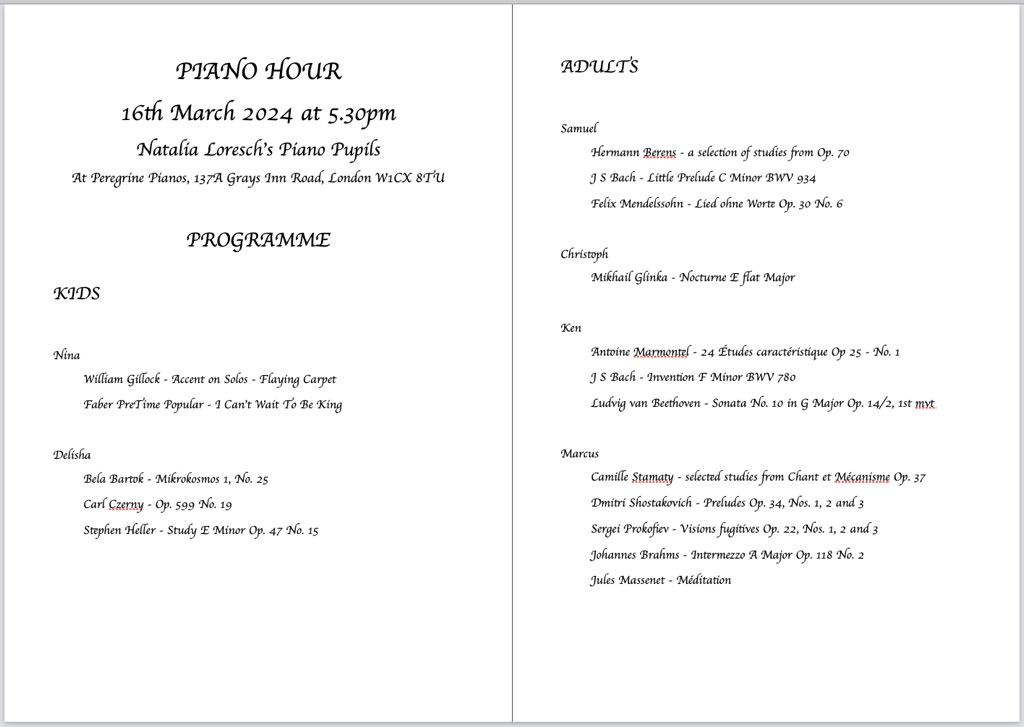
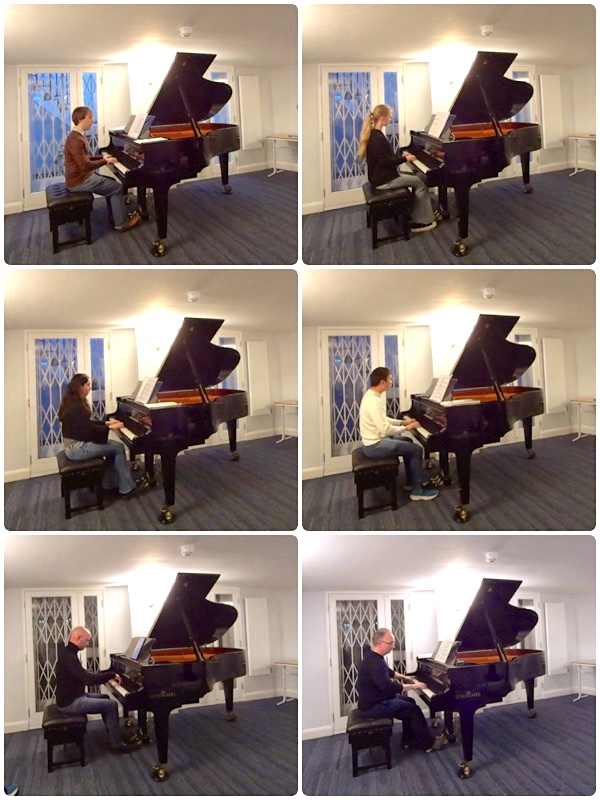
27 January 2024
PIANO HOUR
At Peregrine Pianos, London
With performances of works by C.H. Wilton, William Gillock, Nikolayev, Joseph Haydn, Béla Bartok, Franz Schubert, Carl Czerny, Johann Sebastian Bach, Ludwig van Beethoven, Camille Erlanger, Serge Bortkiewicz, Francis Poulenc, Johannes Brahms, Camille Stamaty as well as beginners' pieces from Hal Leonard, Alfred's and Faber series.
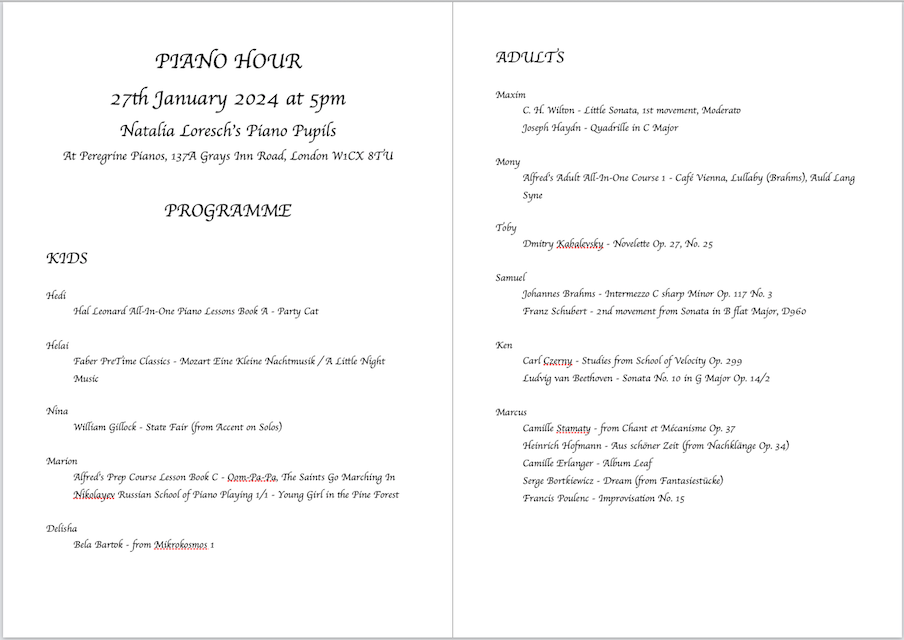
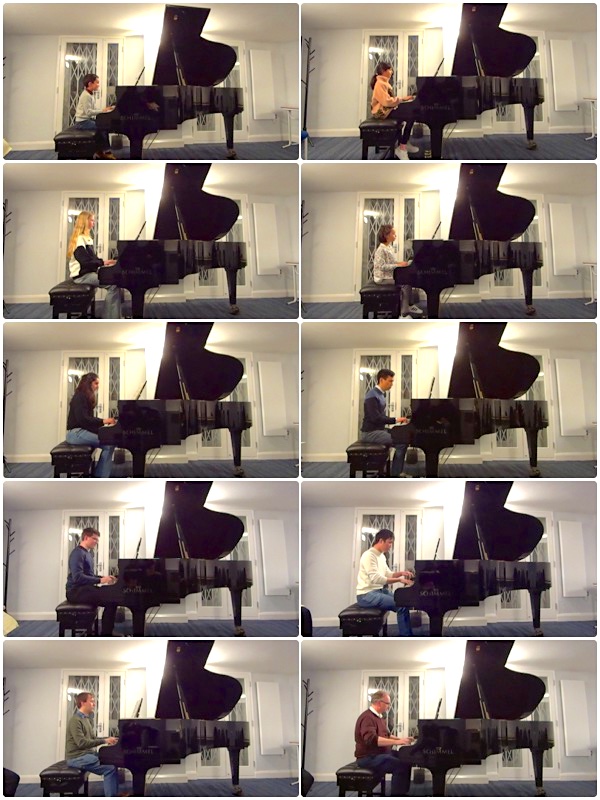
11 November 2023
PIANO HOUR
At Peregrine Pianos, London
With performances of works by C.H. Wilton, William Gillock, Nikolayev, Alec Rowley, Joseph Haydn, Edvard Grieg, Franz Schubert, Carl Czerny, Henri Herz, Johann Sebastian Bach, Ludwig van Beethoven, Heinrich Hofmann, Camille Erlanger, Gabriel Fauré, Serge Bortkiewicz, Scarlatti, Francis Poulenc, Claude Debussy
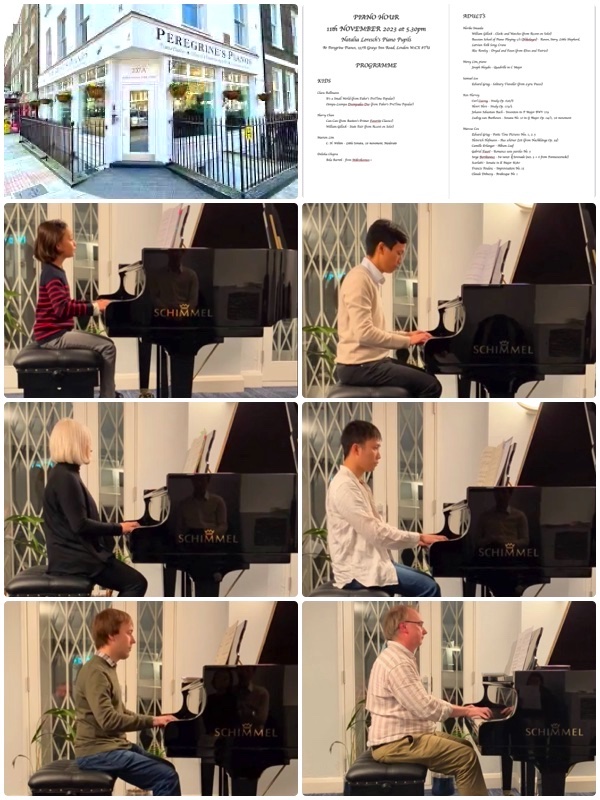
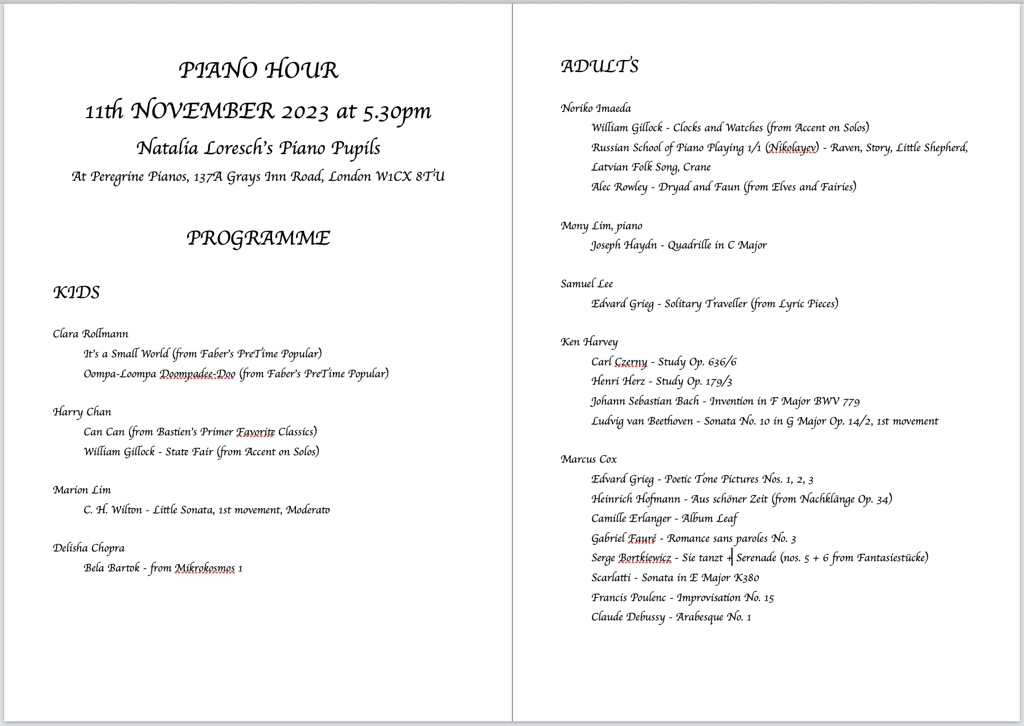
8 July 2023
PIANO HOUR
At Peregrine Pianos, London
With performances of solo piano and violin works by Oskar Rieding, Friedrich Seitz, William Gillock, Daniel Gottlob Türk, Marjorie Helyer, Wolfgang Amadeus Mozart, Carl Reinecke, Alexandre Tansman, Litovko, Alexander Gretchaninov, Felix Mendelssohn-Bartholdy, John Field, Franz Liszt, Serge Bortkiewicz and piano duets by Leopold Godowsky etc.
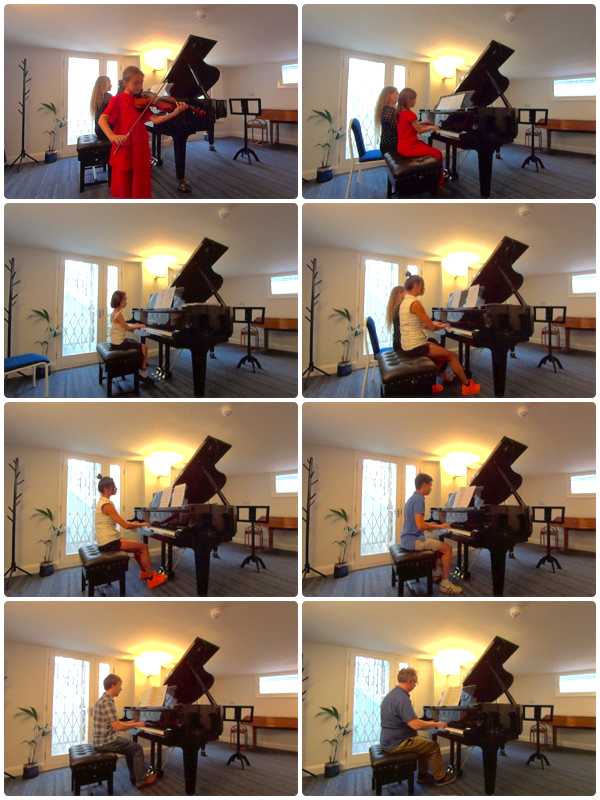
3 June 2023
PIANO HOUR
At Steinway Hall, London
With performances of solo piano works by Carl Czerny, William Gillock, Daniel Gottlob Türk, Jo. Georg Witthauer, Carl Reinecke, Alexander Reinagle, Robert Fuchs, Jean Sibelius, Edvard Grieg (from Lyric Pieces), Antoine Marmontel, Serge Bortkiewicz, Alexandre Tansman and piano duets by Eugen Scholz, Anton Diabelli, Cornelius Gurlitt, Robert Schumann.
1 April 2023
PIANO HOUR
At Steinway Hall, London
With performances of works by Carl Czerny, Béla Bartók (from Mikrokosmos), Carl Reinecke, Robert Fuchs, Felix Mendelssohn (from Lieder one Worte / Songs without Words), Edvard Grieg (from Lyric Pieces), Serge Bortkiewicz, Alexandre Tansman, Walter Carroll, Johannes Brahms, Franz Liszt and J.B. Duvernoy.
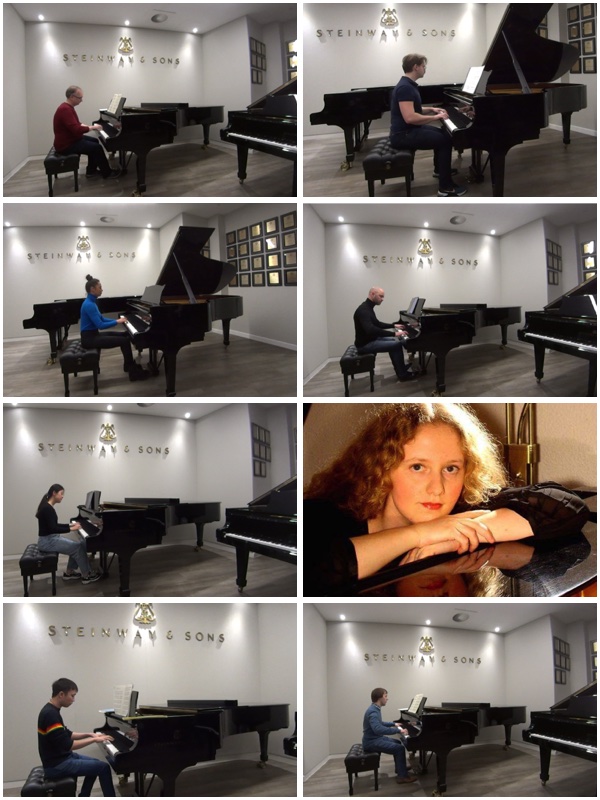
25 February 2023
PIANO HOUR
At Steinway Hall, London
With performances of works by Carl Czerny, Henri Herz, Johann Sebastian Bach, Antoine Marmontel, Béla Bartók (from Mikrokosmos), Carl Reinecke, Robert Fuchs, Franz Schubert (from sonatas), John Field (from Nocturnes), Felix Mendelssohn (from Lieder one Worte / Songs without Words), Edvard Grieg (from Lyric Pieces and Poetic Tone Pictures), Ludvig Schytte (Nocturne and Arietta), Merkel, Serge Bortkiewicz etc.
19 November 2022
PIANO HOUR
At Steinway Hall, London
With performances of works by Franz Schubert (from impromptus), John Field (from Nocturnes), Ludvig Schytte, Felix Mendelssohn (from Lieder one Worte / Songs without Words), Daniel Gottlob Türk, William Gillock etc.
15 October 2022
PIANO HOUR
At Steinway Hall, London
With performances of works by Franz Schubert (from impromptus), John Field (from Nocturnes), Béla Bartók, Carl Czerny, Johann Sebastian Bach (from inventions), Felix Mendelssohn (from Lieder one Worte / Songs without Words), Ludvig Schytte, Edvard Grieg (from Lyric Pieces) etc.
19 November 2021
PIANO HOUR
It has been a very long time - no one expected the pandemic to last as long as it has lasted already. When the lessons were all transferred to online formats in March 2020 the Piano Hours were put on hold. I waited to have these events in a normal live setting in a three-dimensional space with human presence. And after many disrupted attempts to organise a live Piano Hour again this year it has finally happened! As difficult as it is to motivate people to move as before it is worth it!
This time we had performances and discussions of works of Carl Czerny (from School of Mechanism), Ludwig Schytte (from Modern Studies Op. 68), John Field (Nocturnes), Ludwig van Beethoven (from Sonatas), Rachmaninov (Elegy) and Mendelssohn (from Lieder one Worte / Songs without Words) and more.
We are looking forward to the next Piano Hour which is meant to take place in December 2021. Announcements will follow.
3 June 2018
Internal Piano Hour
Piano Hour in Hither Green
8 October 2017
Internal Piano Hour
Piano Hour with works by Czerny, JS Bach, CPE Bach, Mozart, Schubert, Liszt, Kuhlau, Tchaikovsky, Grieg etc.
May 2017
Internal Piano Hour
Piano Hour in Hither Green
13 November 2016
Internal Piano Hour
3 July 2016
Internal Piano Hour
With works by Bartok, Tansman, Schytte, Czerny, Tchaikovsky, Burgmüller, Bach, Hummel, Gretchaninov, Glier etc
15 May 2016
Internal Piano Hour with works by Czerny, Glier, Gretchaninov, Hummel, Chopin, Corelli, Kuhlau, Beyer, Gurlitt, Helyer, Grieg, Kabalevsky, Bartok, Fuchs etc.
20 March 2016
Internal Piano Hour
With works by Kullak, Czerny, Kuhlau, Pachulsky, Handel, Gliere, Glinka, Beyer, Gurlitt, Gretchaninov, Fuchs etc.
21 February 2016
Internal Piano Hour
With works by Grieg, Czerny, Gurlitt, Bach, Kuhlau, Kullak, Beyer, Burgmüller, Amani, Handel, Glinka etc.
10 December 2015
Internal Piano Hour
8 November 2015
Internal Piano Hour
With works by Gurlitt, Chopin, Wagner, Field, Beyer, L. Mozart, Berkovitch, Maikapar and some preliminary repertoire.
18 October 2015
Internal Piano Hour
With works by Czerny, Beethoven, Bach, Tansman, Gurlitt, Scarlatti, Schytte, Prokofiev, Chopin, Haydn, Glinka, Wagner, Field, Amani, L. Mozart and Beyer.
3 July 2015
Internal Piano Hour
With works by Tchaikovsky, Gurlitt, L. Mozart, Handel, some preliminary repertoire etc.
7 June 2015
Internal Piano Hour
With works by Field, Bach/Souza Lima, Tansman, Gurlitt, Prokofiev, Grieg, Bartok etc.
8 March 2015
Internal Piano Hour
With works by Czerny, Kuhlau, Bach, Schubert, Grechaninov, Beyer, Grieg, Gurlitt, Schytte, Tansman and some preliminary repertoire etc.
1 February 2015
Internal Piano Hour
With works by Czerny, Clementi, Kabalevsky, Bach, Schubert, Tchaikovsky, some preliminary repertoire etc.
11 December 2014
Internal Piano Hour
With works by Chopin, Czerny, Bach, Busoni, some preliminary repertoire etc.
12 November 2014
Internal Piano Hour
With works by Beyer, Kabalevsky, Pachulsky, Bach, Chopin, Scarlatti, Reinhold, some preliminary repertoire etc.
6 November 2014
Internal Piano Hour
21 August 2014
Internal Piano Hour
6 July 2014
Internal Piano Hour
23 March 2013
Internal Piano Hour
8 December 2012
Internal Piano Hour
10 November 2012
Internal Piano Hour
7 July 2012
Internal Piano Hour
28 April 2012
Internal Piano Hour
28 January 2012
Internal Piano Hour
12 November 2011
Internal Piano Hour
Piano Lessons London | Online Piano Lessons | Piano Teacher Bio | About Lessons | Piano Lessons for Beginners | Advanced Piano Lessons | Piano Lessons for Kids | Piano Lessons for Adults | Locations | Fees & Discounts | Results | Ethos | Music Library | FAQ | Performance | Piano Hours | Teaching Schedule | News | Media | Links | Reviews | Policy | Blog | Materials | Contact
 Piano Lessons in London & Online | Natalia Loresch | Beginners | Advanced | Professionals ☎️+44(0)7454766539
Piano Lessons in London & Online | Natalia Loresch | Beginners | Advanced | Professionals ☎️+44(0)7454766539